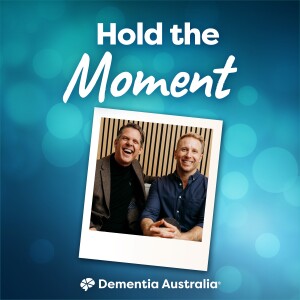

 The Dementia Guide
by
Dementia Australia
The Dementia Guide
by
Dementia Australia


Dementia - Diagnosis, treatment and prevention
Wendy Mitchell navigates the fog of Alzheimer's
Christine Bryden: A conversation about dementia
What's the best time to diagnose dementia . Earlier is better!, by Dementia Australia
Starting a conversation about assessment, tips to help you have a conversation when someone you love is experiencing memory changes
To borrow any resources please join the library.
For library information and support please contact library@dementia.org.au or call 03 9816 5790